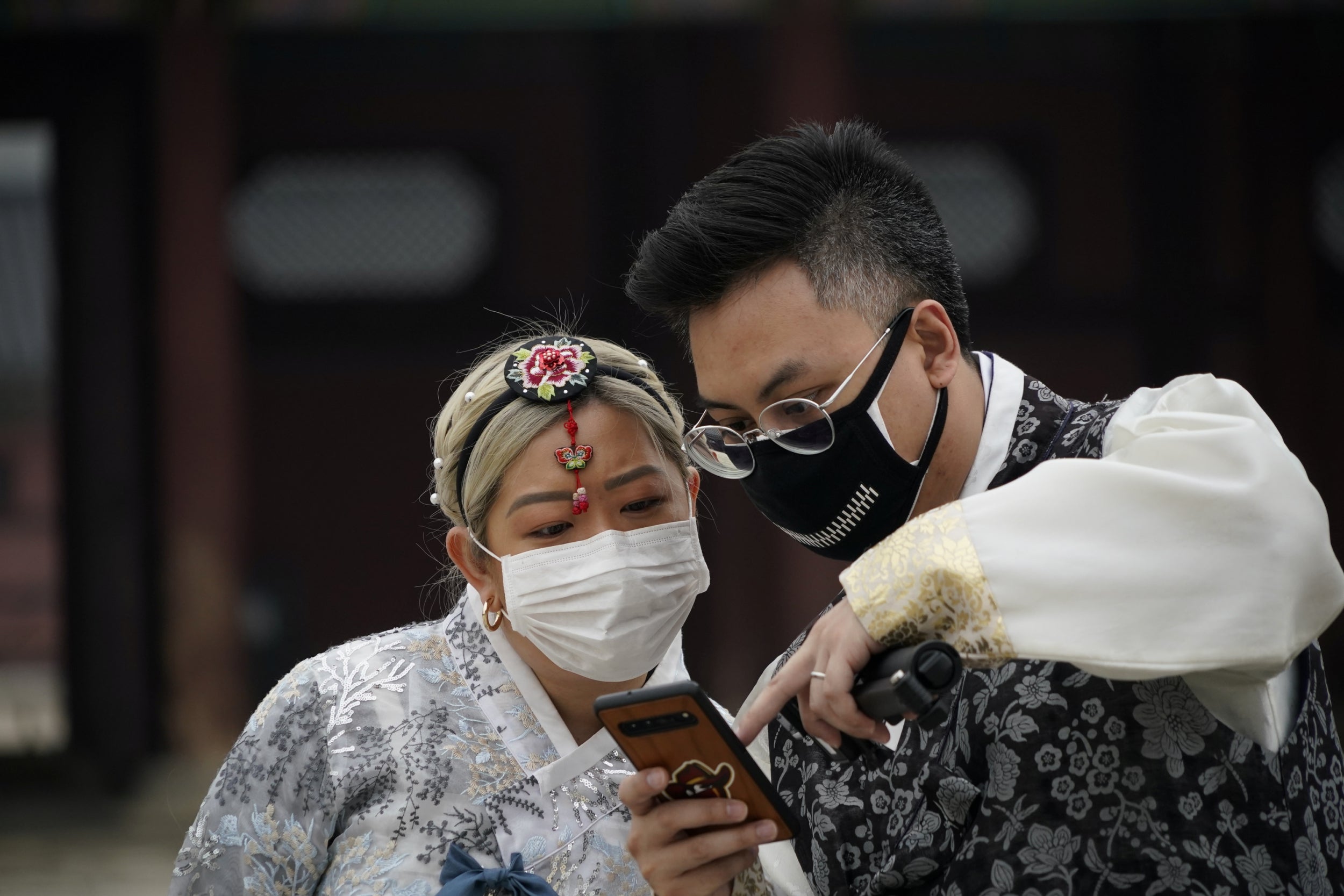Coronavirus apps let people avoid high-risk locations in South Korea
Users alerted if they are within 100m of where people infected with Covid-19 have visited

Your support helps us to tell the story
From reproductive rights to climate change to Big Tech, The Independent is on the ground when the story is developing. Whether it's investigating the financials of Elon Musk's pro-Trump PAC or producing our latest documentary, 'The A Word', which shines a light on the American women fighting for reproductive rights, we know how important it is to parse out the facts from the messaging.
At such a critical moment in US history, we need reporters on the ground. Your donation allows us to keep sending journalists to speak to both sides of the story.
The Independent is trusted by Americans across the entire political spectrum. And unlike many other quality news outlets, we choose not to lock Americans out of our reporting and analysis with paywalls. We believe quality journalism should be available to everyone, paid for by those who can afford it.
Your support makes all the difference.People in South Korea are turning to smartphone apps to avoid areas infected by the Covid-19 coronavirus.
The country was placed on ‘red alert’ last month by health authorities after a rapid rise in the outbreak. Since then, app developers in the country have used public government data to create tools that help track the outbreak, with six of the country's top 15 most-downloaded apps on Google Play now coronavirus related.
The most popular is Corona 100m, which has been installed more than 1 million times since it launched on 11 February. The app alerts users if they come within 100m of a location that has been marked by the government as a high-risk area.
Other apps provide data about where infected people have visited, together with demographic information about the patient.
More than 5,000 people in South Korea have been infected with the deadly virus, making it the country with the most confirmed cases outside of China.
The outbreak is already having a significant impact on the country’s economy. Major manufacturing plants have been forced to shut down, travel restrictions have been put in place and many live events have been cancelled.
The worst affected areas have been in Daegu and the North Gyeongsang Province, where Samsung factories and Apple supply facilities have reported worker infections.
More than 3,600 people in Daegu have tested positive for coronavirus, according to The Korea Herald, resulting in a shortage of hospital beds in the city.
There has also been a shortage of protective face masks, prompting a public apology from President Moon Jae-in on Tuesday.
“I feel very sorry for causing inconveniences to the public by failing to supply masks sufficiently and quickly,” Moon reportedly said.
He stressed the need for an “urgent and bold” injection of state funds, as well as bi-partisan cooperation to pass the necessary budget bills.
Around 30 trillion won (£19 billion) is expected to be rolled out in order to combat the public health crisis and prevent its further spread.
Join our commenting forum
Join thought-provoking conversations, follow other Independent readers and see their replies
Comments